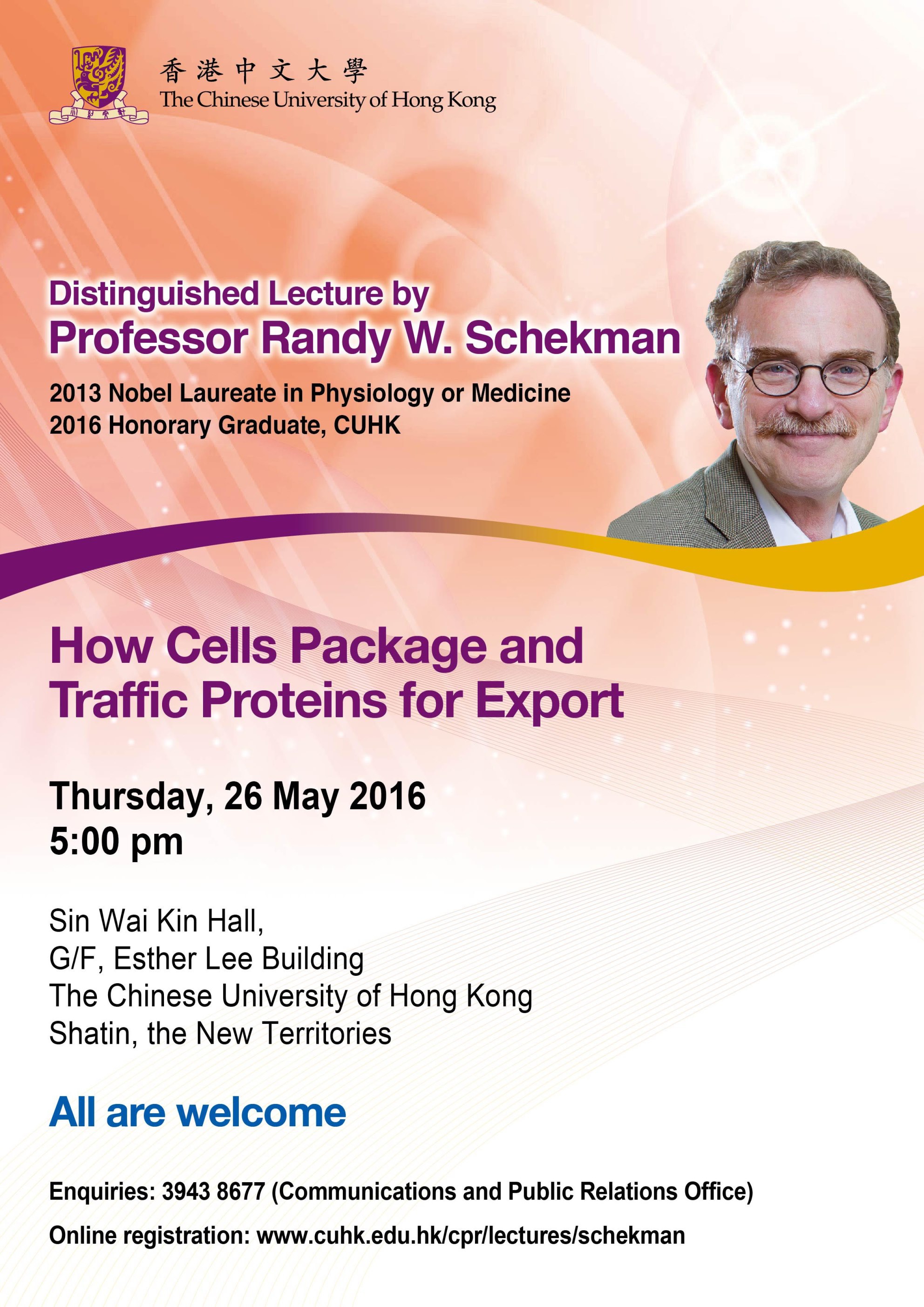活動
傑出學人講座 — 二零一三年諾貝爾醫學獎得主蘭迪‧謝克曼教授主講: 「細胞分泌蛋白質的包裝和運輸基理」
2016年5月26日
下午五時正
香港中文大學利黃瑤璧樓地下冼為堅演講廳
Professor Randy W. Schekman, internationally renowned Cell Biologist, received his PhD in Biochemistry in Stanford University in 1975. He is now University Professor in the Department of Molecular and Cell Biology, University of California and an Investigator of the Howard Hughes Medical Institute. When he joined the faculty at Berkeley, he developed a genetic and biochemical approach to the study of eukaryotic membrane traffic, which reveals how proteins enter and move between membrane-bound compartments of cells. The research carried out by the Schekman lab over the molecular descriptions of the process of membrane assembly and vesicular traffic in eukaryotic cells has been widely taken reference. In 2011, he was appointed Editor-in-Chief of the open access journal ‘eLife’, a new high–profile open–access journal published by the Howard Hughes Medical Institute, the Max Planck Society and the Wellcome Trust. In 2013, he won the Nobel Prize in Physiology or Medicine – which he shared with Professor James E. Rothman of Yale University and Professor Thomas C. Südhof of Stanford University for their discoveries of the mechanism regulating vesicle traffic, a major cellular transport system. (English only)
3943 8677
Human cells manufacture thousands of different proteins such as insulin, growth factors and antibodies which are encapsulated into membrane-enclosed packets called vesicles. Vesicles buzz around in the cell to many different destinations but some are delivered to the cell perimeter where they discharge their contents to the exterior in an export mechanism conserved over a billion years of evolution. What are the mechanics of this process? How is it regulated? How can we exploit this ancient biological manufacturing and transportation system for the sake of modern medicine? Understanding this process and its regulation earned Randy W. Schekman a 2013 Nobel Prize and has allowed the biotech industry to exploit yeast as a production platform for the secretion of human proteins such as recombinant insulin. That process now supplies fully one-third of the insulin used by sufferers of diabetes worldwide. (English only)


